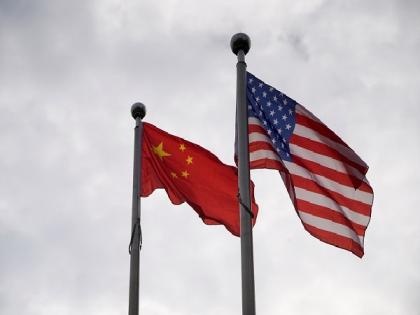China has reason to exercise restraint against US import tariffs, Moody's Analytics
By ANI | Published: May 20, 2024 03:02 PM2024-05-20T15:02:57+5:302024-05-20T15:05:03+5:30
New York [US], May 20 : Moody's Analytics believes China has reasons to exercise restraint in announcing retaliatory tariffs ...

China has reason to exercise restraint against US import tariffs, Moody's Analytics
New York [US], May 20 : Moody's Analytics believes China has reasons to exercise restraint in announcing retaliatory tariffs against the US, at a time when the latter has imposed import tariffs on various critical goods from China.
In a report, Moody's Analytics asserted that retaliatory action from China is likely, but a return to a full tit-for-tat trade war is unlikely.
Describing the new measures as 'political manipulation', China's Ministry of Commerce said it would take 'resolute measures to safeguard its own rights and interests'
"China's economy is fragile. With household spending and the property market on the wane, manufacturing for export markets is one of its few bright spots. Beijing will not want to cut off its nose to spite its face. More broadly, China is desperately trying to encourage new foreign investment. Rash retaliatory action could spoil its case," Moody's Analytics explained its rationale as to why it doesn't see full-scale retaliation by China.
US President Joe Biden, in a move that is seen as a protectionist measure to reduce the trade imbalance, last week imposed heavy tariffs on Chinese products, including batteries, EVs, steel, solar cells, and aluminium.
These tariffs encompass a 100 per cent tariff on electric vehicles, a 50 per cent tariff on semiconductors, and a 25 per cent tariff on electric vehicle batteries imported from China.
The other items that will attract higher tariffs are medical gloves, syringes and needles, some critical minerals, and solar cells, among others.
These proposed increases are part of the US' broader strategy under Section 301 of the Trade Act of 1974, aimed at combating what it deems as unfair trade practices by China. The US Trade Representative, Katherine Tai, had emphasized that these measures are necessary to counter the flooding of global markets with low-cost Chinese products.
Moody's Analytics says the tariff announcement by the US will increase the average tariff rate on imports from China by around 1.1 percentage points over the next three years.
According to the White House, about USD 18 billion of imports from China will be affected. The bulk of the impacts will lie with batteries and battery parts.
USD 18 billion out of USD 420 billion of China's exports to the US is affected, which is little over 4 per cent and marginal.
On the topic of EVs, what impact will these new trade barriers have on China's EV manufacturers, Moody's Analytics, in short, says "not much".
"Over the past few years, less than 5 per cent of all EV shipments from China went directly to the U.S. China's carmakers have much bigger fish to fry, namely, the Europeans. In 2023, Europe took almost half of China's EV exports."
However, the report says there is though a risk of 'leakage'where Chinese firms try to get their goods into the US by other means.
"This could involve rerouting goods through countries with no or low tariffs, including Mexico, Vietnam and Brazil. It's also very likely that Chinese production could be shifted to these and similar countries as a way to get around the trade barriers," it asserted.
Disclaimer: This post has been auto-published from an agency feed without any modifications to the text and has not been reviewed by an editor
Open in app